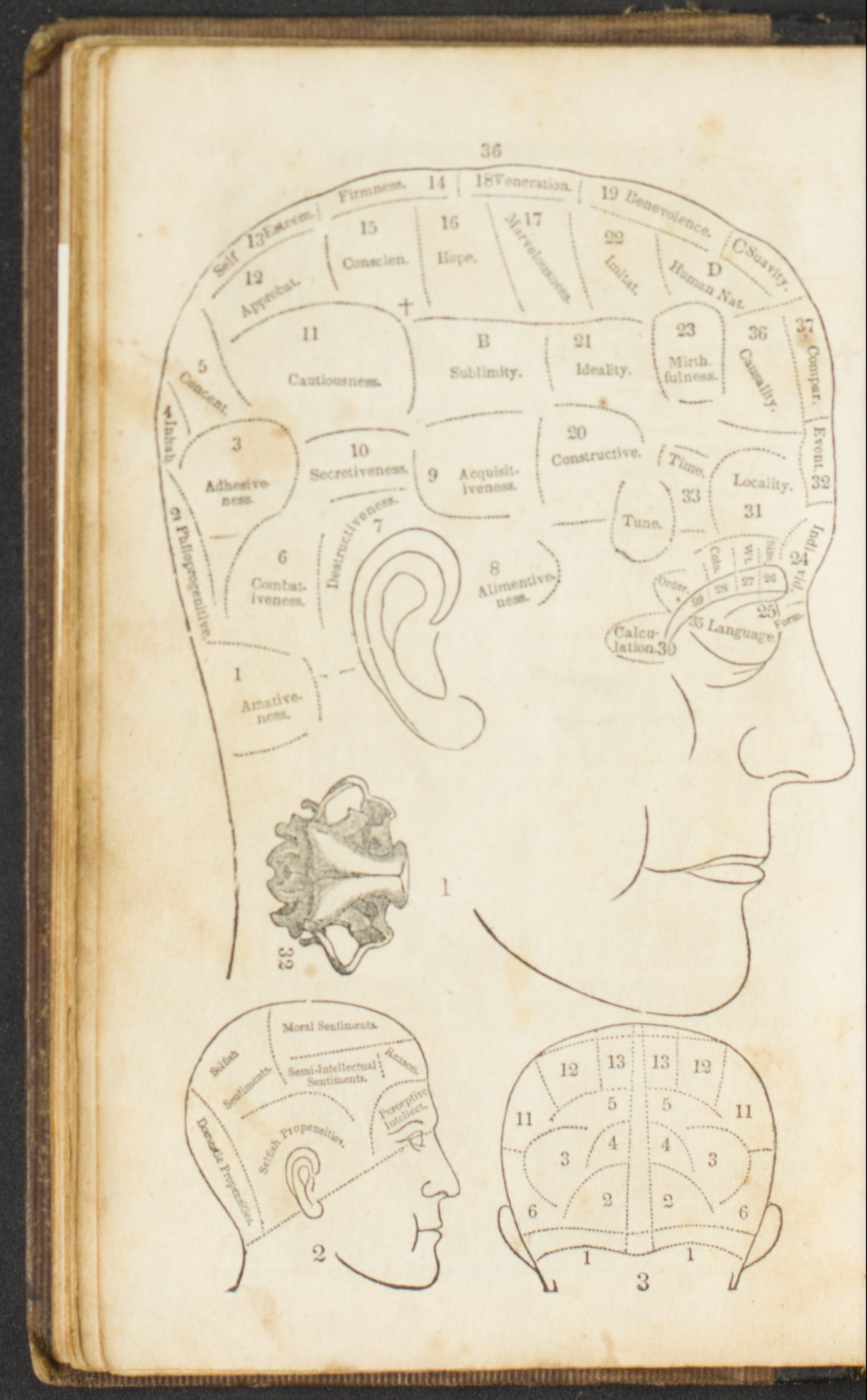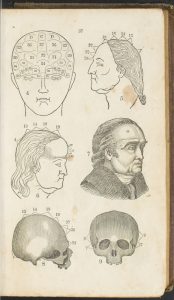Fowler’s Practical Phrenology: Giving a Concise Elementary View of Phrenology: Presenting Some New and Important Remarks Upon the Temperaments and Describing the Primary Mental Powers in Seven Different Degrees of Development; the Mental Phenomena Produced by their Combined Action; and the Location of the Organs


Orson Squire Fowler (1809-1887), along with his brother, Lorenzo Niles Fowler, was one of the leading proponents of the discipline of phrenology. Influenced by the work of German physicians Johann Spurzheim and Franz Joseph Gall, phrenologists theorized that certain personality traits could be traced to specific areas on the surface of the brain, and that by measuring the corresponding area of the skull, an assessment of a person’s personality could be made. Popularized among the middle and working classes in the United States and Europe through books, lecture tours, and public demonstrations, the Fowlers gained a measure of notoriety. Fowler and other phrenologists used these theories to justify racist, ethnic, and anti-Semitic stereotypes, and phrenology’s legitimacy was challenged and discredited. Nonetheless, Fowler considered himself a progressive thinker, as he was also a proponent of abolition, universal women’s suffrage, and child labor laws.
